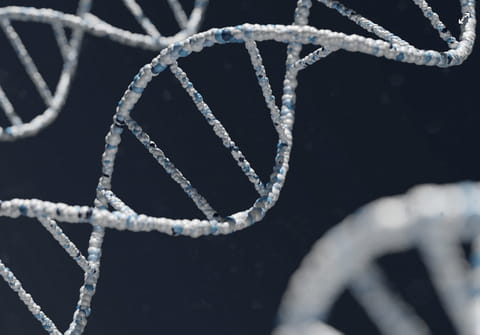Genealogy tests and Genomic Sequencing: a comprehensive guide to DNA tests

Today, without leaving home, you can literally find out what you are made of by ordering a genetic test online. This guide will help you understand the different types of DNA tests, from simple tests to determine your ancestors, to complex and not yet very cheap services to learn about your genetic predispositions and health risks for you, your children, and relatives.
What are DNA tests?
DNA tests (also known as genetic tests) are tests of your saliva that reveal features of your genome that carries your genetic structure. Recently, commercial genetic tests have become very popular to identify possible living or dead relatives, check family ties, as well as to determine the ethnicity of a person and build a family tree. More sophisticated and comprehensive DNA tests are used to diagnose genetic disorders and predispositions and predict the risk of certain diseases.
Where can I order a genealogical DNA test?
How does DNA testing work? You order the test online, receive a test kit that includes a test tube, spit into it, and mail it to the lab. After some time, you receive a report with the results. The cost of a genealogy test for them starts from $50-60, and varies depending on the offer of services included in the testing kit, such as interpretation of test results, drawing up a family tree, etc.
The most popular and trustworthy services for genealogical testing and further construction of a family tree are the following (some also offer testing for medical diagnoses):

The simple genealogy tests we discussed above analyze only a minimal amount of the genome, so they provide only partial information. But there are technologies that make it possible to analyze a much larger part of the human genome and provide serious data on the predispositions of his body. This technology is Genomic Sequencing.
What is Genomic Sequencing?
The entire human genome consists of more than 3 billion nucleotides, which are arranged in a strictly defined sequence. Unfortunately, sometimes it happens that this sequence is disrupted and this leads to hereditary diseases and negative predispositions of the body. In recent years, scientists have created Genomic Sequencing technology - a test to determine genetic damage in human DNA. Genomic Sequencing can help determine the risks of diseases already at the stage of fetal development, as well as in children and even adults. The results of the tests can be used to determine which treatments to use and which medications to take. DNA tests make it possible to reveal the gene structure not only of humans, but also, in particular, of new dangerous viruses, and the sequencing method has been particularly helpful in studying the genome of the causative agent of the COVID-19 virus and tracking its variants.
Just a few years ago, Genomic Sequencing was rare and extremely expensive, but now the technology is becoming cheaper. As of February 2021, approximately 30 million people have had their genomes sequenced, the American Association for the Advancement of Science reports. The analysis of Genome Sequencing data requires particularly accelerated calculations and processing of huge amounts of data. Sequencing the entire human genome generates approximately 100 gigabytes of raw data. This is where scientists and doctors come to the aid of rapidly developing deep learning technologies, which use neural networks to analyze test data at high speeds.

However, the spread of Genomic Sequencing also raises certain moral questions that are widely discussed in the medical community and in society as a whole. Sequencing can be carried out in fetuses, children and adults, and in each case questions of responsibility, decision-making rights, rights of parents and doctors, etc. arise. Therefore, each person must decide for himself whether to resort to this method to obtain information about himself or his children or relatives.
How much does Genomic Sequencing cost?
Today, sequencing prices vary by country or region. In the US, a full genome sequencing test can be ordered between $999 and $399. In the UK, Canada, Australia and India, prices are approximately the same as testing in the US, or may even be slightly lower. As noted in the Stanford Healthcare Innovation Team report, not all companies offer truly high-quality testing, so it is important to research each provider before choosing one. Many companies offer low-cost genetic testing, which is not necessarily whole-genome sequencing and does not provide comprehensive results. Other features you should look for in a provider include the ability to compare your DNA results against an extensive genetic database for in-depth analysis of your test. The largest and most reputable companies in the market are Illumina, Pacific Biosciences, Full Genomes Corp., Veritas Genetics, 454 Life Sciences, Dante Labs, and Solexa.
The cost of testing is expected to continue to decline, with optimistic forecasts suggesting the price will be around $100 at some point. There are also a number of initiatives to bring this technology to regions with fewer opportunities. For example, Illumina launched the Global Health Access Initiative in November 2023 to support access to pathogen sequencing tools for public health in low- and middle-income countries.

